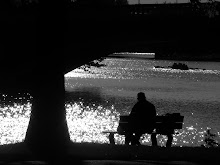Many things have happened in the world as I see it since my last post (in July 2009). Here is a rough inventory with on-the-go comments:
In the World:
- A devastating earthquake hit Haiti in January 2010. It felt utterly unfair, that the most impoverished nation of the hemisphere had to endure this. The recovery is still ongoing.
- Since December 2010, the "Jasmine Revolution" or "Arab Spring" is re-shaping the political landscape in the arab wold. This is probably the single most important event in the last two years. I believe that the consequences of what has happened in the last six months for the world we and our children will live in in the next few years are humungous, and we still haven't really started to grasp their reach.
- The Sudanese people voted in a referendum to favor the independence of Southern Sudan in January. The new country will be officially born in 3 days (July 9th) with huge challenges ahead. May the changes to come turn to be beneficial for its people.
- Japan was hit by a deadly earthquake and a Tsunami in march. This also lead to one of the worst nuclear crisis that humanity has seen since WWII. I was deeply moved by the tragedy, troubled by the risks of nuclear energy, and very inspired by the way the Japanese people reacted to the tragedy.
- Osama Bin Laden was killed. I don't feel comfortable with celebrating a person's death, but I must admit that I felt relief at the news. The means used by this person to advance his ideas were just evil. It is still to be determined wether this will just prompt the emergence of new Bin Ladens, or will really change the nature of the international terrorist threat.
- War criminal Ratko Mladić was captured and extradited to The Hague. This event has helped us learn and/or remember the atrocities of the war in former Yugoslavia, but it is still to be seen if it will really serve justice and reconciliation, or bring about further problems to the republics created after the disintegration of Yugoslavia.
In Latin America:
- The Mexican Drug War has escalated in the last two years. The situation is very serious, and has affected the lives of millions of people. Here, I am still in disbelief.
- A devastating earthquake hit Chile in February 2010. The Chileans showed courage and amazing organization to deal with this tragedy in the midst of a presidential transition.
- Sebastian Piñera became President of Chile in March 2010. This ended the series of governments of the "Concertación" and represents a turn to the right for this country.
- Around the same time José Mujica became president of Uruguay. I have not heard news about his government since then...
- 33 miners were rescued in Chile, after over two months of surviving 700 meter under ground. A unique story of courage. Very inspiring and happy moments.
- Juan Manuel Santos became President of Colombia in August 2010. He was not my favorite candidate, but I have liked many of his actions since he is in power, specially his openness to a tighter integration of Latin America.
- Former Argentinean President Nestor Kirchner died in October 2010. Given his ongoing influence in his country's politics -besides his being married to the current president- this event came as a shock not only for Argentineans, but for many other Latin Americans.
- Dilma Rousseff was elected president of Brasil in 2010. I don't know much about her to comment, but I can say that I have heard more good than bad things about her, and that I am happy that the largest country in my region is led by a woman.
- Just yesterday, Ollanta Humala was elected President in Perú. In full honesty, I am not happy with the news, but I agree with many of my Peruvian friends in that these are not times for complains but for hard work... Everybody deserves the benefit of the doubt, and I wish the best for the future of our neighbors.
In Ecuador:
- On September 30, a major police rebellion led to armed confrontation between the police and the army on the streets in Quito. Blood was shed. The leaders of the revolt acted stupidly, and the President's imprudence put himself in a dangerous situation (for him and for the country). A very sad episode, that ended up bringing political benefits for the government.
- Ruptura de los 25 separated from the governing coalition in Ecuador, over disagreements with the referendum proposed by President Correa earlier this year. I felt we should have done this earlier, when the president showed full support to the Attorney General in spite of the major corruption acts that he was so evidently involved in. At any rate, I find in this decision a source of hope and optimism: we need reasonable critical voices, that expand the debate beyond the "pro or against Correa" spectrum, and this is a clear move in that direction.
- All 10 questions posed by President Correa at the referendum were approved by popular vote, but by a narrow margin. This is probably the most important political drawback for Correa since the beginning of his first government. He is enjoys large political support, but about half of the population expressed concerns and doubts about his policies. This is an opportunity to correct the more authoritarian aspects of his presidency. We'll see...
-------------
It is mind-blowing! This is an on-going intensive-history-making stretch of our lives. Gotta keep our eyes open, and make our minds ask more aggressively: what role am I supposed to play in all of this? Is the role of the captive observer enough?


No comments:
Post a Comment